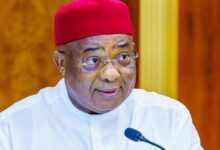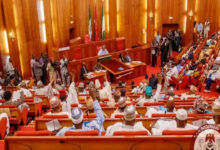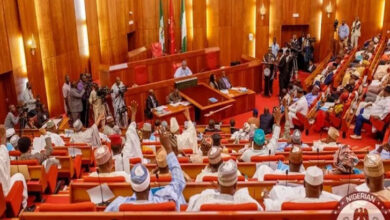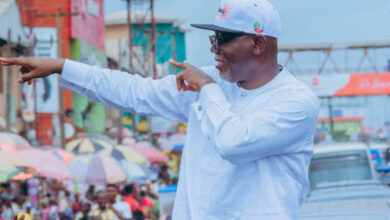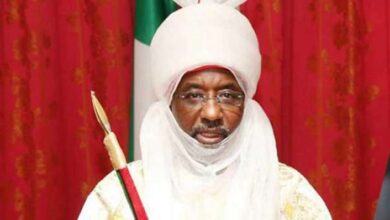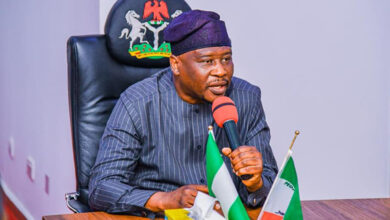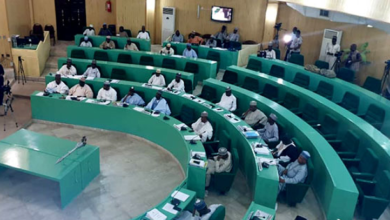Concerns for ‘democracy’ sans viable opposition in Southwest

Opposition parties in the six states of Southwest are bedevilled by various challenges that have incapacitated them from holding the ruling party accountable or offering alternatives to flawed policies. Stakeholders said the development is neither a plus for the ruling party nor for the good of democracy, SEYE OLUMIDE reports.
One of the consequences of the 2023 general election and its outcome is the decimation of already weak opposition parties.
Ten months into the administration of President Bola Tinubu, opposition parties, especially in the Southwest, are yet to get their bearings, giving ruling parties a field day to implement unpopular policies and governors behaving like emperors.
Opposition parties in a democracy have major roles to play. These include constructive criticism of government policies and programmes, restrictions on arbitrariness of the ruling party and safeguarding liberty, and rights of people. Unfortunately, not much of this has been seen after the last election, and for reasons not unconnected with the unsatisfactory outcome of the 2023 elections.
In terms of numerical strength in Southwest, APC has weakened opposition parties, just as the present economic hardship across the nation is not providing them with the necessary atmosphere to put the government on its toes in terms of constructive criticisms and engagements. Even in states where PDP is in power, major opposition are facing similar scenarios. This is practically the situation in Osun and Oyo states where APC is in crisis.
While the PDP national headquarters is currently unsettled and without a substantive national chairman, the party is also not in good shape in Lagos, Ogun, Ekiti and Ondo. LP is facing similar challenges in the region while NNPP has also been bemused with leadership crisis, the same challenge that is affecting the Social Democratic Party (SDP).
Speaking on why PDP has been unable to play its expected role of opposition in Lagos State, former Deputy National Chairman of the party, Chief Olabode George and Dr Adetokunbo Pearse, in separate interviews, agreed that it would be difficult if not impossible for PDP to play any major or critical opposition role now.
This, they said, is due to a serious internal crisis and uncoordinated posture of the incumbent executive of Lagos PDP and the “stranger”, Abdul-Azeez Olajide Adediran popularly known as Jandor, fielded as a gubernatorial candidate in the last election.
They said it was embarrassing that the national body of the party conceded to Jandor’s propaganda, to have allowed him and the Lagos4Lagos Movement to handle the party’s delegate list for the last general election.
Pearse, who is particularly miffed that for the first time since 1999, PDP scored just six per cent of the vote cast in Lagos and also came a second runner-up. “The development is unexplainable,” he said.


Jandor
Both George and Perase also expressed disbelief at how Jandor “suddenly wake up, go to the press to announce that he has suspended and retired the elderly ones in Lagos PDP.” The former military administrator of Ondo State, said, “I am eagerly waiting for what the PDP Board of Trustees (BoT) is going to do about this stranger.”
He said the PDP cannot play any critical opposition now because it is weakened. But Pearse on his part said another reason PDP has not been playing an opposition role is because the state publicity secretary of PDP, Hakeem Amode, who is supposed to be the party’s mouthpiece is only loyal to Jandor, as against the state chairman, Peter Aivoji, who is neither here nor there.
But beyond the Jandor issue, PDP leaders in Lagos are disunited. With sharp division between the chairman and publicity secretary, the party cannot play any critical opposition role.
It is also discovered that despite its internal wrangling, the NWC of the party is also confused about how to resolve and reconcile the warring factions. For instance, while the NWC has come to realise that Jandor took advantage of the governorship ticket given to him at the last election to edge out foundation members of the party, the NWC, itself is in more crisis at the centre.
Pearse also said that “with the political nature of President Bola Tinubu, who is a master media strategist, would continue to take advantage of such infighting to further weaken the PDP.”
However, the duo agreed that though the battle may be tough, the party still stands a good chance to regain its relevance.
LP is also not getting its act together in Lagos. This is due to the crisis confronting the party at the national level. Recall that the party’s governorship candidate, Gbadebo Rhodes Vivour, defected from PDP to contest on the LP platform before the general elections.
Some political watchers said opposition parties have lost their voices to the powerful propaganda machinery of Governor Dapo Abiodun. Besides the main opposition party in the state, PDP went into the last general polls in factions without genuine reconciliation. There are Jimi Lawal, Segun Sowunmi and Ladi Adebutu factions. Other stakeholders in Ogun PDP did not see Adebutu as a serious candidate to represent the party, hence their apathy to the party’s success.
While Adebutu was fielded as the governorship candidate, Lawal and Sowunmi never reckoned with him throughout the election period. The PDP also didn’t have a virile party platform before and after the polls.
Speaking on the lukewarm attitude of the party to governance, incumbent state chairman of PDP, Sikirulai Ogundele, said apart from the obvious internal challenges, no opposition party can be virile in any of the states for now “because the present economic hardship goes across. No governor could be blamed except the president whose policies have turned the economy upside down.”
As for Ogun PDP, Ogundele said, it would be hypocritical to start vilifying Governor Abiodun when PDP’s House is in disarray. We need to resolve our crisis first and pacify all our aggrieved members.
He said that another factor that was affecting Ogun PDP is the situation where one man thought he could use his money to pocket PDP in the state. “We have realised that and it will not happen again. But PDP will come back better, and it is planning a mega-merger with other platforms.”
IN Ekiti State, one of the issues that wrecked the PDP and also rendered it ineffective as the opposition is the anti-party activity of some of its leaders.
Its state publicity secretary, Raphael Adeyanju, said there is no way the party could play any viable opposition now “Otherwise, it would amount to placing the cart before the horse. Anti-party activities of some leaders have weakened the party in the state.


Peter Ayodele Fayose
He said PDP’s ordeal started when former Governor Ayodele Fayose, deliberately planned a coup against the party in collaborating with the ruling APC, by picking a weaker governorship candidate.
According to him, “Such leaders of the opposition endorsed the presidential candidate of APC, presented a weak governorship candidate for PDP and also blatantly endorsed the incumbent governor of APC for a second term. What kind of opposition party is that?”
However, PDP is making some moves towards reconciling its members in the state. On Saturday, the party held what it described as its first unity meeting, after the poor outing in the last election, which pulled it apart, just as it vowed to reclaim the state from APC.
The first unity meeting, which was held at the state party secretariat, had in attendance party leaders and stakeholders across all the local councils of the state including the state chairman of the party, serving BOT members of the party, former acting governor of Ekiti State, former Senators, former members House of Reps, former Speakers and former House of Assembly members, former state chairmen of the party, former and serving state executives.
IN Ondo State, PDP’s strength would be tested in the scheduled November 2024 governorship election. But observers said that even though there is a resemblance of crisis in Ondo APC, PDP is not yet coordinated enough to unseat the ruling party from power.
The reverse is the case in Oyo and Osun states where PDP is in power and APC is playing opposition roles. The same scenario in Lagos, Ondo, Ogun and Ekiti is playing out against APC in the two states.
In Oyo, APC is yet to overcome the shock of the circumstances that brought in Governor Seyi Makinde for a second term. Before the election, President Tinubu jettisoned the party’s gubernatorial candidate, Teslim Folarin and tactically embraced Makinde, just as the presidency has refused to support the party by offering it a ministerial position.


Folarin
The appointment of the incumbent Minister of Power, Adebayo Adelabu, who left APC to contest the governorship election on the Accord platform is still unsettling the leadership of APC in Oyo State. As for now, the party is finding it impossible to operate as one, speak with one voice or have a popular executive to coordinate the activities of the party.
The lingering face-off between two former governors of the state, Rauf Aregbesola and his successor, Adegboyega Oyetola, is still tearing APC members apart in Osun and rendering them incapacitated to play opposition roles.
However, one of the chieftains of Osun APC, Dr Liad Tella, said the party has what it takes to rearrange itself and come back strong in the next election. He also said the same thing would happen in Oyo, especially if Governor Makinde decides to field an unpopular candidate in 2027.
